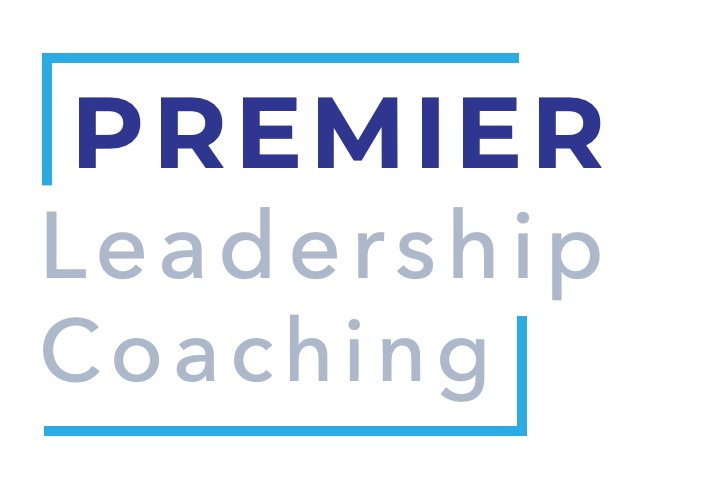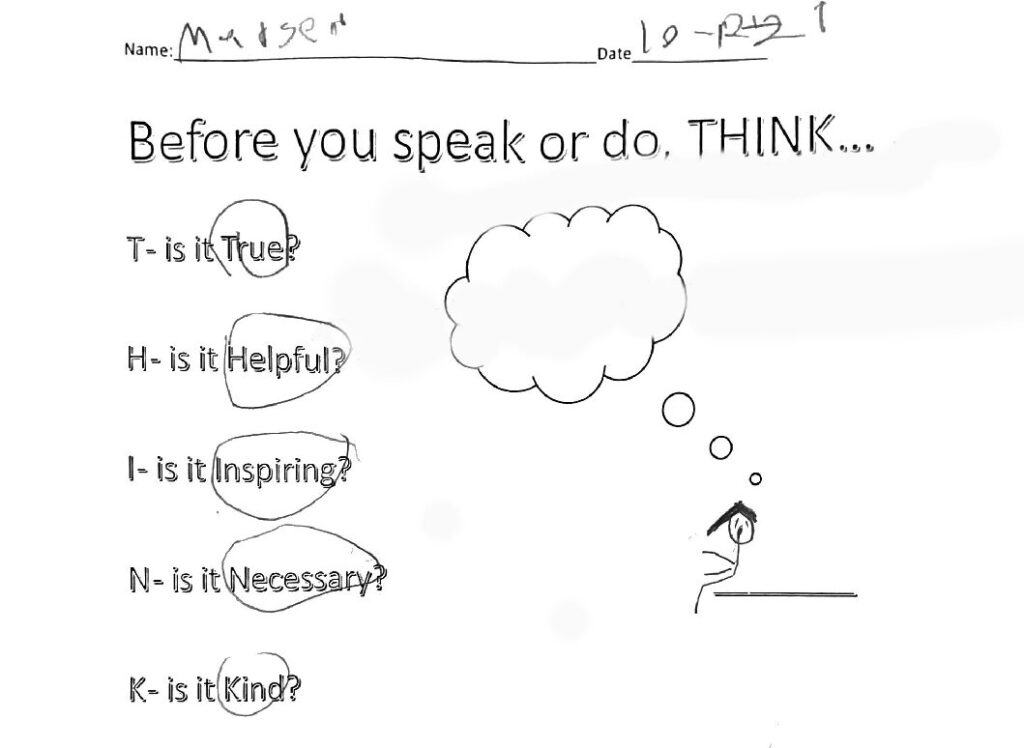Notice: Undefined index: file in /home/yebsotmywway/public_html/wp-includes/media.php on line 1734
Notice: Undefined index: file in /home/yebsotmywway/public_html/wp-includes/media.php on line 1734

ACCORDING TO ALEXA

According to Alexa
Notice: Undefined index: file in /home/yebsotmywway/public_html/wp-includes/media.php on line 1734
Notice: Undefined index: file in /home/yebsotmywway/public_html/wp-includes/media.php on line 1734
Before You Speak or Do, THINK
For a long time now I have told my CEOs, “Everything you need to know about successful leadership you learned in kindergarten.”
Don’t cut the line, wait your turn, take turns, share, use nice words, don’t be a pig, don’t interrupt, raise your hand, do your best, give everything 100%, say sorry, don’t run in the halls, and wash your hands after you pee. Up until now, this theory of leadership of mine has been intuitive and cobbled together. While knowing it to be true, I haven’t had anything to point to – to offer up as proof. That is, until today.
This morning, like every morning (even Saturday and Sunday) the Hartleys were in “hair on fire” mode trying to get out the door. In the midst of the tumult, I needed to clean out my 6 year old’s take-home folder. In doing so, without meaning to, I stumbled upon evidence showing that it is indeed true that the most important leadership lessons are disseminated in elementary school – wisely, still on paper and still in pencil.
We say it all the time, “Think Before You Speak.” But we don’t do it. We are moving a mile a minute and the whole thinking thing slows us down. We lack discipline and self-control and blurting out requires neither and feels so good too. We love the sounds of our voices and nothing is wiser than the wisdom rolling and rolling off our tongue. All of those words make us feel so smart.
I like my son’s handout because it goes beyond the traditional wisdom of thinking before talking and provides an actionable framework for how to go about it. It gives concrete pointers and by doing so, the message lands more fully and is harder to forget. I have some favorites on this list of five items and I bet you do too (be sure to ping me and let me know).
For me, helpful, necessary, and kind are the stars. Helpful because there is a ton we can and do say but does any of it actually help anything? In my experience, once the dust settles a lot of what is said doesn’t do a single productive thing. It fills space, passes time, fluffs some ego, creates the illusion of getting things done, but isn’t particularly helpful. It doesn’t solve problems, it doesn’t boost people up, it doesn’t generate awesome solutions and, it doesn’t bring us closer together. The thing is said, the mouth is run, the damage is done, and then status quo.
Necessary is great because it gets to the talking for the sake of talking. Yes, you spoke, you added to the conversation but did you make a measurable contribution? Would the world have kept turning without you chiming in and adding your two cents? If the answer is yes, don’t say it. Skip it. You can even say it to yourself if you can’t keep the gem to yourself. For the second transactional flaw, coach to the CEO stars, Marshall Goldsmith lists “Adding too much value.” Basically, what Dr. Goldsmith is categorizing as a no-no is chiming in when it’s not necessary.
When I was little, when you were little, you were told, “If you don’t have anything nice to say, don’t say it at all.” When did we lose sight of that? At what point did that become wrong? Irrelevant? At what age did saying not nice things become OK? When did mean become an effective leadership style? For leaders who need to voice hard truths, I concede that revision is appropriate. The mantra should be something more like, “If you have something not nice to say, have the maturity, decency, and creativity to find a way to say it with kindness.” And here is the thing, if you can’t do that, maybe you aren’t qualified to run a company.
Here is why True, Helpful, Inspiring, Necessary, Kind is so important for leaders – not only will it save your butt when it matters, but it will be your life vest and your parachute when you are about to do more harm than good, like pissing off the talent so bad that they walk out the door, demotivating your team in the middle of a critical deadline, or silencing your most creative contributor when innovation is what is going to make the company.
We all lack EQ and when we couple an EQ deficit with speaking without thinking we get disaster. No one is going to tell you that you suck at EQ especially if you are the boss or control the other person’s livelihood in some way. So we bumble along with our poor EQ, speaking without thinking creating inefficiencies, missing opportunities, and burning bridges along the way.
But there is hope. I know because my son, Madsen, brought the cheat sheet home from school. Take a moment. Ask yourself five questions and if you say yes to all, feel free to talk away. But my guess is that more often than not the words about to be released into the universe are either not truthful, helpful, inspiring, necessary, or kind and are better left unsaid. It will be better for you, better for your company, and better for every single person around you.
HT Dr. Lexande for doing such powerful work with my boy and to my neighbor Vince for talking through these ideas with me and for being the embodiment of THINK, especially the kind piece.

According to Alexa
You Are the Problem; You Are the Opportunity
“OMG it has been a week, hasn’t it?!?”, my client Brandon wrote in an email earlier this month. I had sick kid trouble a day or two before and he was working through car trouble the day of his message. I smiled when I saw his words in my inbox – they summed up the whole mess perfectly. It had been a week…
As I muddled through my day yesterday, I unconsciously started thinking about it in terms of Brandon’s artful descriptor. It had been a day for sure. One where I had decided the world was against me. No one was doing life right and I was paying the price for their ineptitude.
One of my client’s misunderstood me and took something small and innocent that I wrote and blew it way out of proportion. This in turn upset some of her direct reports who got emotional and defensive and took that out on me. They sent me into a tizzy making me write and send some emails that were dead on but would probably be taken out of context and used against me. And don’t get me started about my kids.
Despite my best efforts to raise them right, it became apparent that they were not only selfish but lazy too. I could continue with the school’s slow-as-molasses assistant and my friend’s seating preference at lunch, but you see it right? Understandably, by the time I clawed my way over the finish line I was left depleted, baffled, and wondering, “What was everyone’s problem, and what the heck did a good girl like myself do to deserve all their drama?” Again, like Brandon wisely coined, it had been a day, but for none of the reasons I thought.
Like always, the type of day it had been was 100% on me.
My client’s interpretation was accurate, her direct reports’ reaction was appropriate, the emails were indelicate, and my kids were being normal. There was a problem though, that’s for sure. But the problem was me and I had done plenty. I had chosen my words badly, I had created undeserved tumult, I had written the emails and I was being an unreasonable and demanding mom.
But here is the cool thing. Yesterday also opened a doorway to opportunity, and that opportunity is all mine too. If I am the problem, then I get to be the solution. If someone else is the problem, there isn’t a darn thing I can do about it. I am at their mercy, waiting for them to address the issue, and until they do life will continue to go in every direction but the one I want.
As you know, I am a religious atheist. And like any good religious atheist, there is this prayer that I recently have been considering deeply, the Mi Shebeirach. I heard it for probably the millionth time when I was with my kids this past weekend at Sunday school. Funny how you can listen to something your entire life and never really hear it. But for some reason on this Sunday, it got to me. The entire prayer is short and well worth reading, but the words that landed with me are, “Help us find the courage to make our lives a blessing.” Notice it’s neither “help others find the courage to make their lives a blessing” nor “help others find the courage to make our lives a blessing.” The prayer is about us and the work we need to do in our own lives.
Typical and a little bit annoying. It is always about us. Always. We need to be mindful of this as people. And we need to be mindful of this as leaders. It is never about your employee’s deficiencies; it is always about whether you have the chops to connect with them. It is never about the investors not understanding you. It is about you not speaking understandably. It’s not about the problematic coworkers who don’t do their share, it’s not about people misunderstanding your genius, it’s not about the consultant who doesn’t know what he is talking about. Well, as you know, I can continue, but you see it right?
That reality, that you are the problem, is a scary thing to lean into. But it is exciting too because then you are the opportunity.
You have what it takes to reach every single person that works for you and inspire them to do their best. You have everything you need to speak in a way that investors are fanning dollars at you from the palms of their hands. As the Mi Shebeirach says, if we only can find the courage, then we can be a blessing, and it is only by acting as a blessing that all the outcomes we all so desperately desire can be ours.
The first act of courage is to take that finger we so often point straight ahead, outward, and turn it 180° so that it is square at our chest with our fingertip snuggly against our heart. If we truly don’t want to have a day or a week, or any of the multitudes of things that vex us then we must have the courage to do something about our own behaviors.

According to Alexa
Leadership Without Goodness and Mercy Is a Ship Adrift
This morning I thought of something that my closest friend from college used to say, “Alexa, you are the most religious atheist I know.”
Kate’s words came back to me when I found myself thinking about leadership and its relationship to a line from, “We Bid You Goodnight,” a song I love. “We Bid You Goodnight” has been covered time and time again and everyone who does it adds their own special touch. But in all versions, it is a partial recitation of Psalm 23. Even if you are not a religious atheist like I am you likely know this Psalm as it is quite common not only in both Jewish and Christian liturgy but also in popular culture. No bells ringing yet? Well, let me throw you a bone, “Though I go walking through the valley of death.” Ah, yeah, that one.
Anyhow, it’s not that famous line that got me thinking about leadership, but one that appears later in the Psalm. In the version of the song I was listening to, Sam Amidon sings the line as what sounds like, “Goodness and mercy shall follow me over.” Admittedly, it is a little hard to make out and it is possible that what Amidon is singing is the exact line from the Psalm, “Goodness and mercy shall follow me all the days of my life.”
In either case, I got to wondering why goodness and mercy? Of all the nouns in the English language, why would these two be the ones to follow us into the afterlife (should there be one), or why this duo for all the days of our lives? Why not two of the other 46,000 nouns? Intelligence and charisma? Kindness and generosity? Power and money? Beauty and attention? Creativity and innovation? These seem pretty good to me. In fact, they are often the ones we strive for and the ones we value. Mercy? When was the last time you heard anyone discuss mercy at work? Mercy as a leadership quality? Crickets.
Is it that these other attributes are unimportant? All of a sudden money doesn’t matter? Does status not feel good? No, I think not. Premier Leadership Coaching without income is problematic and I like being president of this place. Further, not a lot of magic happens without intelligence. A world without beauty would be unbearable. We wouldn’t get far without creativity and innovation. So, it is not that these things are insignificant. It is simply that if the slate had to be wiped clean, if all else melted away, and there could only be two things – goodness and mercy are the way to go. I have heard that if lost in the woods a knife and water purification are the most important tools to have. A fire starter is a close third and food is nice too, but the essentials, the things you cannot manage without are a knife and purification. It goes this way too with goodness and mercy for all of us, but for leaders especially so. Stationed at the helm leaders chart the course and steer the ship thereby setting the tone for the entire organization and serving as custodian of the well-being of every single worker.
Goodness and mercy aren’t the only measures, but they are the final measure. They are the anchor, the mooring, the compass, and Polaris – the tools we use to navigate leadership. If we sacrifice goodness and mercy at the altar of money, power, status, or existence-changing creativity, all of us are lost.
Avoiding this type of failure is not a hard fix. The trick is to habitually assess your actions, regularly look at the contributions you are making, explore how you are leading your organizations, and chart your path in a direction where you can maximize the goodness with which you are acting and the mercy you are extending to others. It must be part of your reflection and journey. The same way you look at budget, strategy, staffing, cost, and customer service you must evaluate goodness and mercy too. If not, we will lose the way for everyone on the boat. For if we as leaders don’t “remember right well” and do right well, who will?

According to Alexa
You Don’t Know and That’s The Truth
“I know” is a common refrain among leaders. Leaders like to say it and people like to hear it.
It creates a sense of security in both the speaker and the receiver. Saying it feels strong, sure, and right. Hearing it makes us feel safe and steady. Hence, our attraction to “I know” isn’t such a mystery. Unfortunately, over time, our bias for “knowing” has become mistaken for good leadership – a sign of strength and a hallmark of a good leader.
I am not a stranger to the “I know” fallacy. As a mom, it is what I tell my kids when they are scared. I use different versions of it. Things like, “don’t worry, everything is OK,” “nothing bad is going to happen to you,” and “do it like this, it is the right way.” It is all par for the course – an adult guiding a young, less experienced child. It goes on all the time in households all over the world throughout the ages. I like to think that given my role as a parent, I get a hall pass for lying. And that given my children’s ages, they get a pass for needing this type of assurance. But passes don’t change the fact that my “I knows” are pure baloney.
I don’t know… How can I? Who would expect me to? Why do people other than my kids even need that from me? There are 7,800,000,000 people on the planet, 1,597,675,921,459,200 square feet of land, and 6,500 languages spoken on Earth today – it is a wonder I would know anything.
And leaders don’t know either. “I know, this is the way, I am right” are all false. Worse than false they are red flags – mostly innocent and well-intentioned, but warning signs nonetheless. Leaders are lying to themselves and others when they speak and act in this way. And our mistaking this perhaps unintentional deception for leadership is a shame on us. Leaders take on the role of the omnipotent parent and we willingly become the naïve child. But thankfully we aren’t children and those that lead us aren’t our parents. Thus, we all would be better served, achieve more favorable outcomes, and come up with more interesting solutions if we stopped pretending that we know.
Burdening our leaders with the unrealistic expectation of knowing, bogging them down with unnecessary stress that our need for certainty brings isn’t just unfair to our leaders it is unwise as well. Without the heavy load that accompanies “I know,” we create space for experimentation, innovation, and exploration. It is so much more interesting than knowing and ultimately much more fruitful too.
Let’s be people who can handle a more honest approach. Let’s find a different litmus test for 21st-century leadership. Let’s be leaders who show respect to the people who journey with us by having the courage to own fully our not knowing.
I suggest running with, “how about we try,” “maybe we could see,” “I think it could be,” “I wonder if it is,” “I suspect it might,” and “we will figure it out together.” More words, more truth, more bravery, and better results – an escape route from a fiction with limited efficacy at best.
Are you interested in a more impactful approach to leadership? SCHEDULE a time with me to explore ways you can make a greater impact and get more of what you want.

According to Alexa
Rookies Go It Alone… Pros Have Coaches
This morning Seth Godin wrote, “At the top tier of just about any sort of endeavor, you’ll find that the performers have coaches.”
He goes on to consider why with top-tier professionals this almost universal truth is untrue. Over the years I often have wondered the same. Why do so many purported professionals act like amateur hacks when it comes to their livelihood? How can people with so much riding on them (big salaries, dependent employees, institutional legacies) really believe they are going to kick butt on gut instinct alone? Shouldn’t we know that raw talent and smarts only get us so far?
My 11-year-old daughter is a competitive swimmer, and she has at least three different coaches in two different states. “Why?” you may be asking. Well, she wants to kill it – rip out its bleeding heart and eat it. So, you know… you need help with stuff like that. If you asked her how smart it is to swim the 200 Free without any guidance, without a trained professional on the side of the pool showing her the way, you’d likely get a 2021 version of “bah humbug!”
The kid is 11 and she knows there is nothing honorable, nothing brave, about trying to win her heat without a coach and that it is next to impossible to shave a single second off her time without someone else’s guidance. But grown-ups – heaven help us! We put our blinders on and keep grinding it out for excellence – all of our weaknesses in tow, stubbornness intact, wishful thinking in place, above-average results right around the corner, entire careers spent this way.
Something else Godin said that should be considered deeply, “It turns out that the people with the potential to benefit the most from a coach are often the most hesitant.” Hmm… Funny how this resistance to coaching is actually a clearly marked trailhead – a message from the universe, that we fail to understand. We think, “don’t want coaching, don’t need coaching, don’t have time for coaching, the organization is doing just fine without coaching,” but we are all wrong. This desire to shy away from coaching is really a broadcast to lean in. All of those “I’ve got it under control, I don’t need this, it isn’t for me” are just signaling that coaching is in order – now.
If you are interested in hearing more from me on true commitment to craft, achieving greatness for yourself and your organization, or making a huge gaping marvelous dent in the universe, you can find me on LinkedIn, or you can simply fill out a CONTACT FORM or contact me via EMAIL.

Might and Mercy as Prerequisites for Good Leadership
I know you want to be a good leader. Wanting to be inspirational, effective, and remembered makes perfect sense. Yet, most people aren’t great leaders.
In fact, odds are you aren’t a great leader. Leadership is tricky and out of reach for most. It’s this magical combination of empathy and high-standards. You’ve got some folks good at the former – they care about people. And you’ve got even more folks good at the latter – they expect a lot and don’t have a problem letting you know it. But having both – being both – is too hard for most people. They can’t pull it off.
Good leadership is both art and science. I’ve seen it on occasion and it is powerful. Despite all of the executives I have worked with, the best example of effective leadership is my daughter’s former kindergarten teacher. If you have ever been in a kindergarten class, you know that if you can lead five year olds and get them to work for you, you can lead anyone. Mrs. Bell would drop down so that she could look the children in the eye when she spoke to them and she often told them that she loved them. She never had a mean word for any of them, never raised her voice, and never lost her temper. But she never babied them. She never let them off the hook and she had the world’s highest standards. No matter that they were five, she expected excellence and the kids knew it. And the result was that those kids would have followed her anywhere. She had what every leader wants – respect, productivity, efficiency, excellence, creativity, teamwork, contribution.
Part of the reason we are insufficient leaders – either too soft or too hard – is that natural- born leadership is a myth.
Well, maybe not a total fiction, but it is about as common as being ambidextrous or being able to touch your nose with your tongue. My husband says dogs are born knowing how to swim. Throw any dog in a pool and it will paddle. I don’t know if this is actually true, but I am 100% sure that for the most part people aren’t born knowing how to lead. Look at the leaders you have known personally and anecdotally (or even leader in the mirror maybe). How many of them are nailing the leadership thing? Most are drowning or, at best, treading water.
In fact, our very human wiring often is at cross-purposes with leadership. The amygdala – our lizard brain – is what triggers the fight or flight response. Also, often it sabotages us as leaders. When someone doesn’t follow our direction, questions our authority, makes a mistake, rejects our ideas, doesn’t work hard, criticizes us, and takes control from us the lizard brain perceives all of this as danger and threat. We become, not the good leaders we so badly desire, but leaders who are either confrontation adverse or confrontation inclined. We become all empathy (wimps softies) or all rules/regulations (uncaring, punitive). Neither is good. In either case, we lose people, they check out. When we default too far left or right on the empathy – results scale people don’t consistently and loyally follow us, we get half-hearted effort, they don’t hear what we say, they are sloppy, they aren’t invested, and they leave.
Nonetheless for those who have the courage and the resolve, bad leadership isn’t destiny. The amygdala is not the only part of the brain. Luckily for leaders and maybe even more so for everyone being led, we have the prefrontal cortex too and this is where beneficial executive function happens. The prefrontal cortex gives us the ability to pause and the pause is powerful!
With a pause we create options. Instead of making a situation worse either by failing to confront the problem or alternatively engaging in work place combat we can stop in the middle of our flight or fight panic. The pause creates room for us to silently ask, “Is there another way?”
Great leaders do this. They are not controlled by well-intentioned, but misplaced instinctual responses.
Before reacting, before mistaking a manageable workplace skirmish for high-stakes, life or death, drama, they ask themselves questions such as – what is really going on here, is a compromise possible, is my approach the best approach, what’s the real danger, how can both of us come out winners, is the best thing really for me to get my way, and what is this other person feeling?
Leaders who are pushovers or bullies surround us. Why wouldn’t they? This is the lazy leader’s path. It is what we do when we don’t have better options and when more impactful tools are absent. Too much to the left or the right is a hallmark of desperate leadership. Worthwhile leaders, on the other hand, take neither a strictly soft touch nor heavy-handed approach. Rather, they incorporate both. In this way they are remembered, followed, and bring forth our best work and highest potential.
It’s not about being liked or being nice. It’s not a popularity contest after all. Simply, it’s good business strategy. Work is about money ultimately or at least a large part of it is. A hybrid leadership approach – being an empathetic human and also a masterful businessperson – positively impacts the bottom line. Leaders know that if they go too easy they will be ignored, ineffective, and won’t get compliance. If too hard, compliance is temporary, transactional, and not sustained – people only listen when you are in the room to scare them into submission.
It is natural to react before assessing. It is even normal to be controlled by fear and anger. However, this is not the path to great leadership. It is not the road to exceptional success.
To be a real leader – one who is respected, heard, and one people work hard for – silence your lizard brain
The next time the stakes are high, when someone lets you down, when you crave results, listen to your executive function reminding you that this is not mortal combat with a foe and that with a pause and the use of the prefrontal cortex, there is a way for all involved to come out alive, intact, and victorious.

